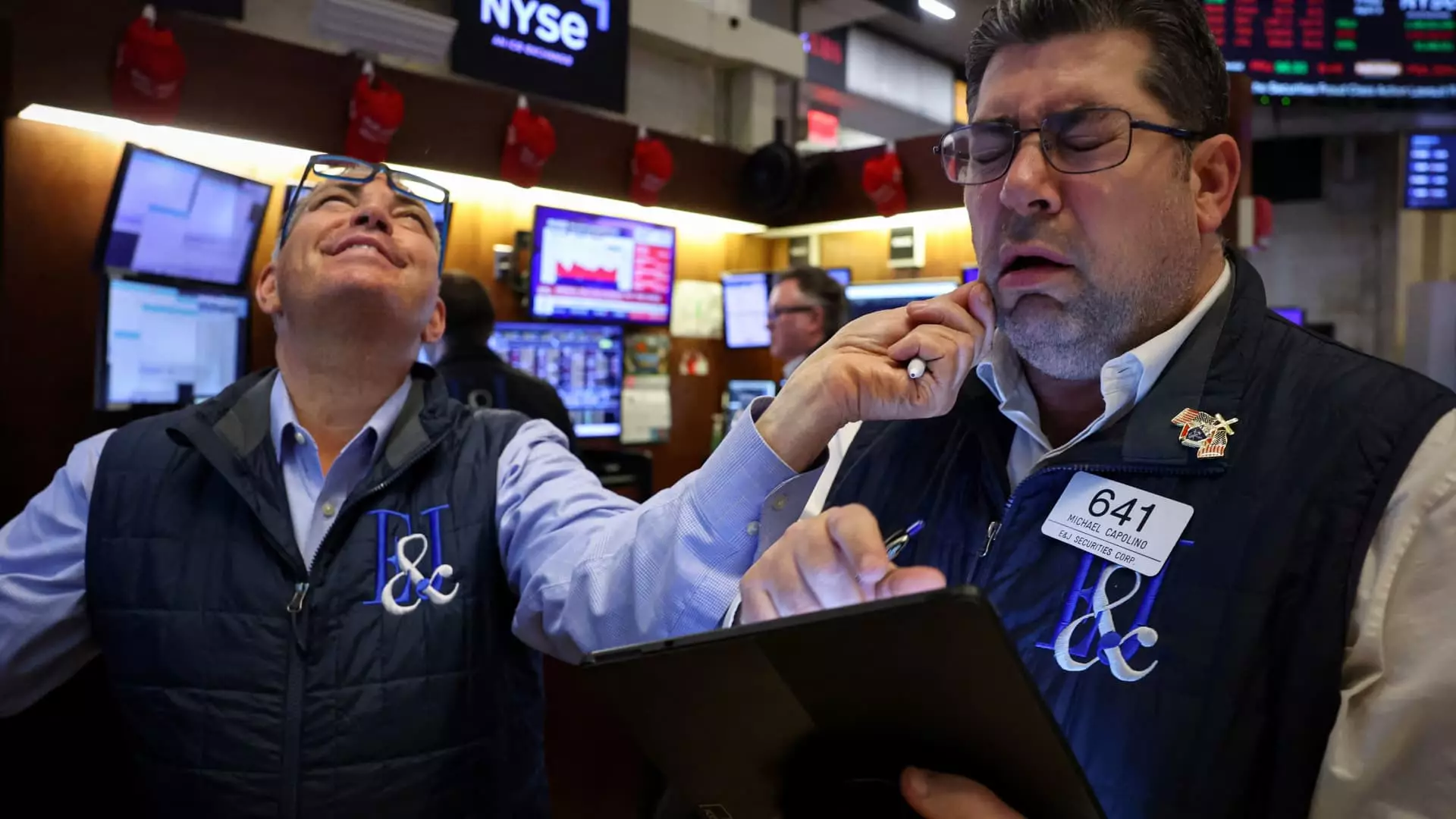In an audacious move that has sent shockwaves through the global markets, President Donald Trump’s latest tariff strategy has spiraled from a precarious gamble to absolute chaos. The expectation that the tariffs could pose a manageable threat to the economy has dissolved into the harsh reality of unbridled economic repercussions. Initially considered a mere hiccup, the announcement of sweeping tariffs on all U.S. trading partners feels more like the opening act of a tragically comedic play gone horrifically wrong. Instead of spurring the anticipated negotiations that would have led to mutual concessions, the tariffs have ignited economic turbulence reminiscent of historical blunders that precipitated long-lasting distress.
Trump’s “America First” doctrine has always had its supporters, but his recent tariffs signal a blatant disregard for economic rationality and global trade stability. The promised enhancement in American production and job creation was built on a foundation of optimism that has now been shattered by a reckless display of protectionism. Economists and market watchers alike could only watch in horror as the effective tariff rate ballooned from a mere 2.5% to projections suggesting rates could exceed 20%. Alternatives to the old reciprocity standards have proven to be nothing more than theoretical musings as our trading partners brace for impact and retaliate in kind.
Retailiation: A Blowback of Epic Proportions
The initial consequences of this colossal mistake became evident almost immediately. Any thoughts of a diplomatic resolution were dashed as China retaliated swiftly with steep tariffs of 34%. The cascading effect of these economic hostilities does not simply end with China; the specter of trade reprisals hangs ominously over dealings with the European Union, Canada, and Mexico. Consequently, the U.S. finds itself isolated and in a highly volatile position. What began as an overreaching attempt at negotiating better trade deals has instead crystallized into what can only be described as economic warfare.
The ripple effects of this uncertainty are already being felt across Wall Street, where stocks experienced a ferocious sell-off, plunging the Nasdaq Composite into bear market territory. Investors, rattled by the unpredictability of future earnings driven by tariffs, took shelter in bonds, turning away from equities that now seem perilously unstable. Proponents of Trump’s trade policies might argue that the ultimate goal of fostering negotiations justifies these harsh measures; however, what they overlook is that negating historical economic interdependencies often invites retaliation and stymies the kind of cooperative approaches that yield mutually beneficial outcomes.
Illusions of Economic Wisdom
In the wake of these developments, the administration’s simplistic mathematical approach to determining tariffs has drawn sharp criticism. The erroneous calculations suggest an amateurishness that implicates fundamental flaws in economic reasoning. Rather than employing a nuanced understanding of global trade dynamics, the approach has essentially targeted high-deficit trading partners with a heavy hand—resulting not in equitable trading but inequitable punishment. Economics is rarely straightforward, and the administration’s failure to grasp this complexity reveals a profound lack of foresight.
The potential for inflationary pressures in the U.S. economy as a consequence of these tariffs only serves to compound the disarray. The Federal Reserve’s reluctance to step in and provide relief, as Chair Jerome Powell indicated, paints a grim picture of a stagnant economic climate. While Trump might proclaim his tariff strategy as tough love intended to invigorate American manufacturing, the reality for many Americans is the burden of rising prices in an already fragile post-pandemic economy, further exacerbated by rising interest rates.
The Uncertain Road Ahead
With Trump’s adamant declaration that his “policies will never change,” the markets remain engulfed in uncertainty. Investors may take some solace in the Stock Traders Almanac’s observations that corrections do not always morph into bear markets, yet there is an unsettling sense that this is not just a correction but rather the beginning of a larger economic unraveling. Amid an extensive loss of wealth—over $6 trillion vanished from the stock market within days—the average American is left to ponder what this means for their own financial security.
The pitfalls of Trump’s economic strategy highlight a broader dilemma. How does a nation promote economic vigor while navigating the treacherous waters of global trade? The answer is not to insulate oneself with heavy tariffs and trade barriers. Instead, the focus should be on fostering healthy partnerships, collaborating with allies, and addressing underlying issues within the economy, such as productivity and technological advancement. The path forward will require foresight, innovation, and the recognition that in this interconnected world, cooperation breeds prosperity far more effectively than antagonism.

